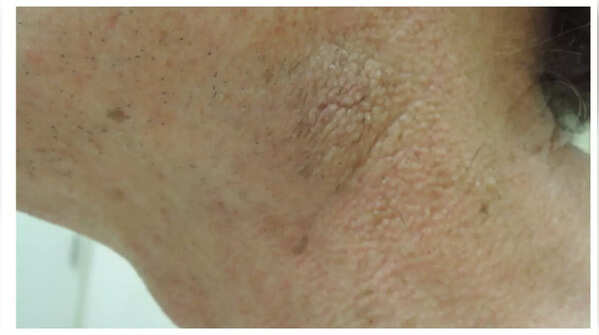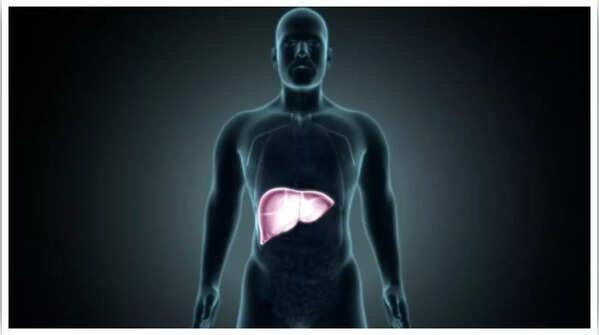Liver disease encompasses a range of conditions that impair the liver's vital functions. These ailments can stem from genetic predispositions, viral infections, lifestyle choices such as poor diet and alcohol consumption, and even obesity. A challenge in detecting liver disease lies in its often subtle early symptoms, which can be easily overlooked. However, recognizing these early warning signs is crucial for timely intervention.

Experiencing unrelenting fatigue, even after adequate rest, is a common early indicator of liver disease. When the liver's functionality is compromised, it struggles to effectively filter toxins from the bloodstream. This accumulation of toxins can lead to persistent feelings of weakness and exhaustion, distinct from typical everyday tiredness.

A loss of appetite or persistent nausea can also signal early liver problems. The liver plays a pivotal role in digestion and metabolism. When damaged, it disrupts the body's ability to process food, leading to decreased hunger. Individuals may also experience nausea or stomach upset after eating, serving as subtle yet significant early warnings.

Abdominal pain or discomfort, particularly in the upper right quadrant of the abdomen beneath the ribs, can be an early sign of liver disease. This area corresponds to the liver's location. The pain may manifest as a dull ache or soreness, with fluctuating intensity over months. It can be exacerbated by deep breathing or movement. This symptom is often dismissed due to its mild nature or misattribution to other digestive issues.

Itchy skin, often overlooked, can also be an early warning sign. When the liver is compromised, bile salts can accumulate in the bloodstream, irritating skin nerves. This results in persistent itching unrelated to allergies or dry skin. Liver-related itching typically affects the entire body and can be intensely uncomfortable, warranting attention even after lotion application.

Swelling or puffiness in the legs and ankles can indicate impaired liver function, although it can also be indicative of many other conditions. A healthy liver produces proteins that maintain fluid balance in blood vessels. When damaged, fluid can leak into surrounding tissues, causing edema. This swelling is often painless but noticeable, particularly after prolonged periods of standing or sitting.

The vague nature of early liver disease symptoms often leads to their misinterpretation as common ailments like fatigue, stomach upset, or skin irritation. The liver's remarkable capacity for self-repair can cause symptoms to wax and wane over time, reducing the likelihood of individuals seeking medical attention. However, ignoring these subtle signs can have serious consequences. Untreated liver disease can silently progress to severe conditions such as cirrhosis, liver failure, or even liver cancer.
Disclaimer: This information is intended for general knowledge and does not substitute professional medical advice. Consult with a healthcare provider for any health concerns.
Older articles
 7 Science-Backed Strategies to Naturally Elevate Oxytocin, the 'Love Hormone'
7 Science-Backed Strategies to Naturally Elevate Oxytocin, the 'Love Hormone'
 Azhar Mahmood Named Interim Test Coach for Pakistan
Azhar Mahmood Named Interim Test Coach for Pakistan
 'Kuberaa' Maintains Box Office Strength: Dhanush-Nagarjuna Film Earns ₹1.25 Crore on Second Monday, Domestic Total Exceeds ₹80 Crore
'Kuberaa' Maintains Box Office Strength: Dhanush-Nagarjuna Film Earns ₹1.25 Crore on Second Monday, Domestic Total Exceeds ₹80 Crore
 Sridevi's 'Laadla' Set Haunted by Late Divya Bharti's Unfinished Scene: Raveena Tandon Recalls Eerie Moments
Sridevi's 'Laadla' Set Haunted by Late Divya Bharti's Unfinished Scene: Raveena Tandon Recalls Eerie Moments
 Jury Begins Deliberations in Diddy Sex Trafficking Trial; No Verdict on Day One
Jury Begins Deliberations in Diddy Sex Trafficking Trial; No Verdict on Day One
 Aamir Khan Details Underworld Invite to Dubai Party, Refusal Amid Family Safety Fears
Aamir Khan Details Underworld Invite to Dubai Party, Refusal Amid Family Safety Fears
 Smith Aims for Second Test Return After Unique Baseball Cage Training in NYC
Smith Aims for Second Test Return After Unique Baseball Cage Training in NYC
 Foods to Avoid on an Empty Stomach: What Not to Eat First Thing in the Morning
Foods to Avoid on an Empty Stomach: What Not to Eat First Thing in the Morning
 5 Subtle Signs of Colon Cancer You Might Be Ignoring: What to Watch For
5 Subtle Signs of Colon Cancer You Might Be Ignoring: What to Watch For
 Chappell Hails Pant's 'Phenomenal' Innings, Compares Him to Gilchrist After Headingley Heroics
Chappell Hails Pant's 'Phenomenal' Innings, Compares Him to Gilchrist After Headingley Heroics